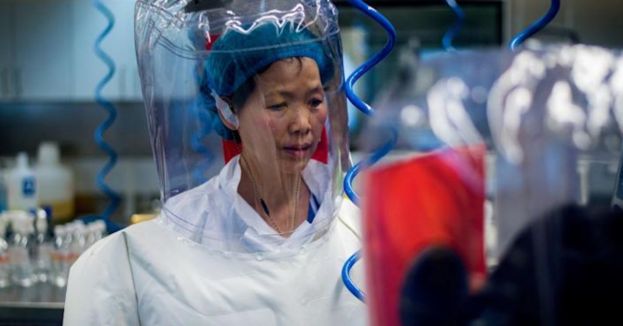Recognized popularly as the innocuous-sounding gain-of-function, these kinds of studies include enhancing a virus to make it more infectious to properly learn how it spreads.
“This is a debate we’ve been having for 10 years,” Gregory Koblentz, director of the Biodefense Graduate Program at George Mason University, explained. “Even though there’s new attention because of the purported relationship between research at Wuhan Institute of Virology and COVID-19, this is not a new issue.”
A robust debate within the scientific community over how to approach gain-of-function experiments began in 2012 when a group of scientists took a strain of the disease that causes bird flu and changed it to spread between mammals by respiratory drops.
WATCH: BRITISH COLONEL RICHARD KEMP REPORTING FROM GAZA![]()
The experiment built ethical anxieties among scientists who argued the risks may have far exceeded the possible advantages of creating a virus that, at the time, did not occur in nature and was not an active threat to humans.
“[I]t is easily possible that this lab-engineered ... strain would constitute a novel danger for humans if ever it escaped,” Simon Wain-Hobson, a French microbiologist, argued in a strongly worded paper at the time.
WATCH: NO CLUE WHY THEY ARE PROTESTING: "I WISH I WAS MORE EDUCATED"![]()
In 2014, dozens of scientists called on the Obama administration to stop gain-of-function research after a string of accidents in top labs across the United States involving deadly pathogens, including anthrax and smallpox.
TRUMP READY TO DEBATE BIDEN 'ANYWHERE, ANYTIME, ANYPLACE,' BUT WILL IT HAPPEN?![]()
“An accidental infection with any pathogen is concerning. But accident risks with newly created ‘potential pandemic pathogens’ raise grave new concerns,” wrote the collection of specialists, who called themselves the Cambridge Working Group.
TIKTOK'S DOOMSDAY CLOCK IS TICKING: HOW WILL THIS AFFECT ITS 170 MILLION AMERICAN USERS?![]()
“Laboratory creation of highly transmissible, novel strains of dangerous viruses, especially but not limited to influenza, poses substantially increased risks.
"An accidental infection in such a setting could trigger outbreaks that would be difficult or impossible to control.”
WATCH: ILHAN OMAR WARMLY WELCOMES SUSPENDED DAUGHTER AT COLUMBIA'S ANTI-SEMITIC ENCAMPMENT![]()
The U.S. government paused its funding for gain-of-function research in October 2014 amid public concerns, promising to start a “deliberative process” to develop new rules for managing future studies.
CRITICS SLAM BIDEN'S ATTEMPT TO RELATE PERSONAL TRAGEDY TO POLICE OFFICER DEATHS![]()
After years of discussion, the National Institutes of Health lifted the ban on funding gain-of-function research in December 2017 and imposed rules requiring a new layer of review for each experiment. Though concerns continued among some scientists who thought the rules may not be sufficient.
NYU ENCAMPMENT ORGANIZERS PUSH PROTESTERS TO JOIN THIS PRO-HAMAS NETWORK![]()
“I still do not believe a compelling argument has been made for why these studies are necessary from a public health point-of-view; all we have heard is that there are certain narrow scientific questions that you can ask only with dangerous experiments,” Marc Lipsitch, a Harvard University epidemiologist, told the Lancet in 2017.








 Discover alternative ideas that will make you think
Discover alternative ideas that will make you think Engage in mind bending debate
Engage in mind bending debate Earn points, rise in rank, have fun
Earn points, rise in rank, have fun


